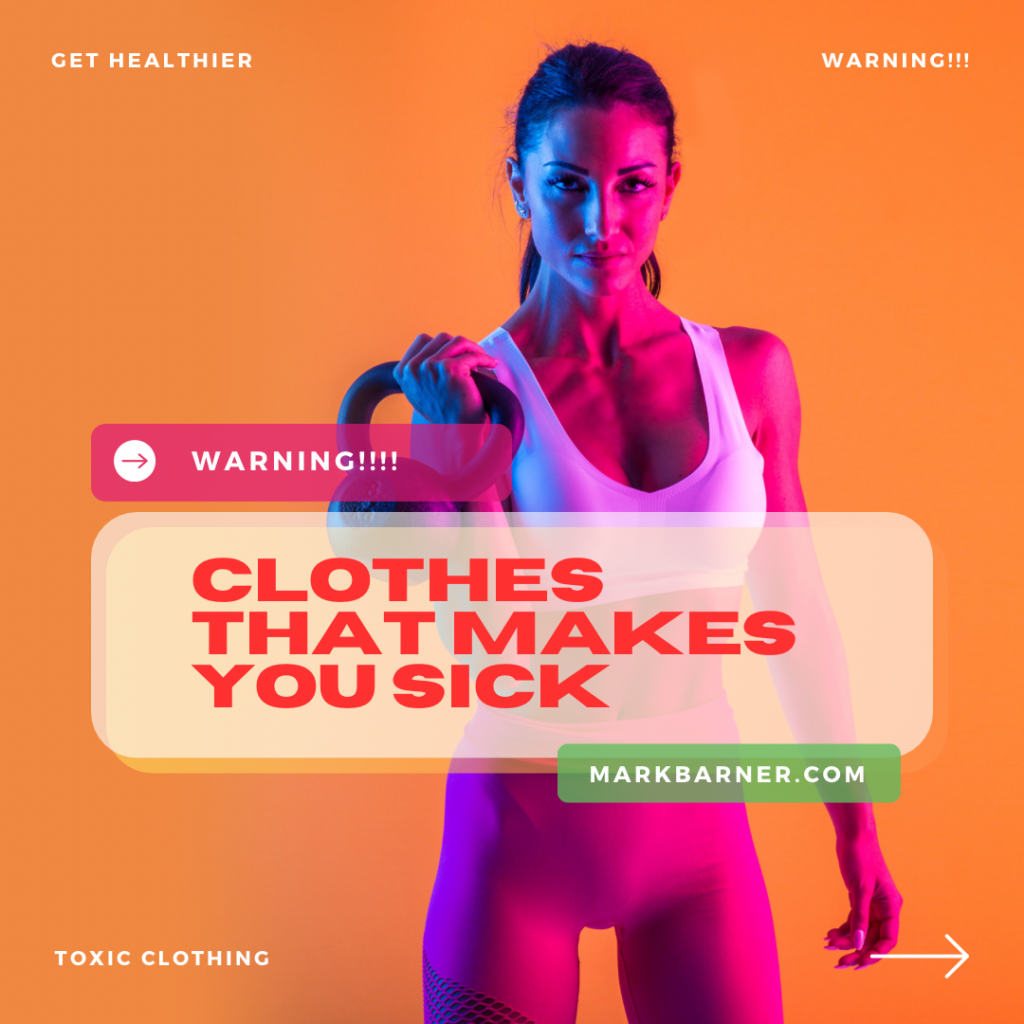
Avoiding Polyester and Plastic Clothing: A Guide to Healthier Alternatives
SPECIAL DEAL: Support your own health and saving 15% on these supplements using this LIMITED OFFER – CLICK HERE
List of Unhealthy Clothing Materials
- Polyester
- Nylon
- Acrylic
- Spandex (Lycra)
- Rayon
- Acetate
- Triacetate
- Polypropylene
- Polyurethane
- Microfiber
Why These Materials Are Unhealthy
Chemical Composition and Health Risks
- Bisphenol A (BPA): Found in many synthetic fabrics, BPA is an endocrine disruptor that can interfere with hormone production and regulation. Exposure to BPA has been linked to a range of health issues including thyroid dysfunction, reproductive harm, and increased risk of certain cancers.
- Phthalates: Often used to make plastics more flexible, phthalates can disrupt the endocrine system, leading to hormonal imbalances and reproductive issues.
- Per- and Polyfluoroalkyl Substances (PFAS): Used for stain resistance and water repellency, PFAS are persistent in the environment and human body, leading to potential risks such as cancer, liver damage, and immune system effects.
Skin Absorption of Chemicals
- Direct Skin Contact: Our skin can absorb chemicals from synthetic fabrics, especially when we sweat. This is particularly concerning with activewear, as increased body temperature and moisture enhance the absorption of harmful substances.
- Microplastic Shedding: Synthetic fibers shed microplastics, which can be inhaled or ingested, contributing to the overall plastic burden in our bodies.
Health Effects of Hormone-Disrupting Chemicals
- Thyroid Dysfunction: Chemicals like BPA can mimic thyroid hormones, disrupting their natural balance and leading to conditions such as hypothyroidism or hyperthyroidism.
- Reproductive Health Issues: Phthalates and other endocrine disruptors can affect fertility and development of reproductive organs.
- Metabolic Disorders: Exposure to these chemicals has been linked to obesity and diabetes due to their impact on hormone regulation.
- Increased Cancer Risk: Prolonged exposure to endocrine disruptors is associated with higher risks of breast, prostate, and other cancers.
Ditch the Tight Polyester Yoga Pants
Wake up! Those tight polyester yoga pants hugging your skin and reproductive organs are a health hazard. Sure, they might make you look sexy now, but at what cost? These synthetic fabrics are loaded with chemicals that mess with your hormones, leading to mood swings, irrational behavior, and long-term health issues.
Throw out all your plastic clothes. You won’t be so sexy dealing with hormonal imbalances and health problems. Many people stick to what they’ve always done because it’s comfortable—even if the clothes feel comfortable now, that doesn’t mean you won’t develop hormonal issues in a few months or years. By then, it will be too late.
Don’t be complacent in your old plastic clothes. Start changing your life today. Switch to natural, breathable fabrics like organic cotton, linen, and hemp. Prioritize your health and well-being over trendy, synthetic outfits. Make the change today and truly take care of your body.
Detoxifying from Synthetic Clothing Exposure
Steps to Detoxify
- Increase Water Intake: Staying hydrated helps flush toxins from the body.
- Consume Antioxidant-Rich Foods: Foods like berries, nuts, and green leafy vegetables help combat oxidative stress caused by toxins.
- Regular Exercise: Sweating helps eliminate toxins through the skin.
- Infrared Saunas: Promote sweating and detoxification.
- Liver-Supporting Supplements: Milk thistle, dandelion root, and turmeric can help support liver function. GET LIVER HEALTH HERE
- Activated Charcoal: Binds to toxins in the digestive system to help eliminate them from the body.
- Chlorella and Spirulina: Algae that help detox heavy metals and other toxins.
- Glutathione: A powerful antioxidant that supports overall detoxification processes.
- Omega-3 Fatty Acids: Found in fish oil, flaxseed oil, and walnuts, they reduce inflammation and support cellular health.
- Probiotics: Support gut health, which is crucial for detoxification.
- Vitamin C: Enhances the body’s natural detoxification pathways and supports the immune system.
Avoiding Synthetic Clothing
- Choose Natural Fabrics: Opt for materials like organic cotton, linen, hemp, and wool. These fabrics are free from harmful chemicals and allow the skin to breathe.
- Check Labels: Always read clothing labels to avoid synthetic blends.
- Buy Organic and Sustainable: Look for certifications like GOTS (Global Organic Textile Standard) for assurance of safe and sustainable production practices.

Healthier Clothing Options
- Organic Cotton: Breathable, durable, and chemical-free.
- Linen: Made from flax, it’s breathable, strong, and has natural antibacterial properties.
- Hemp: Highly durable, breathable, and eco-friendly.
- Wool: Especially Merino wool, which is breathable and regulates body temperature.
- Bamboo: Soft, breathable, and eco-friendly when processed responsibly.
Supplements and Foods for Detoxification
There are many techniques to get rid of micro plastics in the body and to detox and one of the fastest ways might be supplementation. That is why you can support your own health and my research – by saving 15% on these supplements using this LIMITED OFFER: https://markbarner.com/plasticdetox
- Supplements:
- Milk Thistle: Supports liver detoxification.
- N-Acetylcysteine (NAC): Boosts glutathione levels, aiding detoxification. GET HERE
- Activated Charcoal: Helps eliminate toxins through the digestive tract.
- Chlorella and Spirulina: Algae that bind to heavy metals and aid in their removal.
- Glutathione: A potent antioxidant that enhances detoxification.
- Omega-3 Fatty Acids: Reduce inflammation and support overall health.
- Probiotics: Maintain a healthy gut microbiome.
- Vitamin C: Boosts the immune system and aids detoxification.
Foods that detox:
- Cruciferous Vegetables: Broccoli, cauliflower, and Brussels sprouts support liver detoxification.
- Citrus Fruits: Lemons, oranges, and grapefruits enhance detoxification pathways.
- Leafy Greens: Spinach, kale, and Swiss chard provide essential nutrients for detox.
- Fiber-Rich Foods: Whole grains, legumes, and seeds help bind and remove toxins from the body.
- Garlic and Onions: Contain sulfur compounds that support liver detoxification.
- Green Tea: Rich in antioxidants that help detoxify the body.
- Turmeric: Contains curcumin, which has anti-inflammatory and detoxifying properties.
Final thoughts
Switching to natural fabrics and adopting a detox-friendly lifestyle can significantly reduce your exposure to harmful chemicals found in synthetic clothing. Prioritizing organic, sustainable clothing options like cotton, linen, and wool ensures better health and well-being. Complementing this with a diet rich in detoxifying foods and supplements will help mitigate the effects of past exposures and support overall health.
Discover more from
Subscribe to get the latest posts sent to your email.
